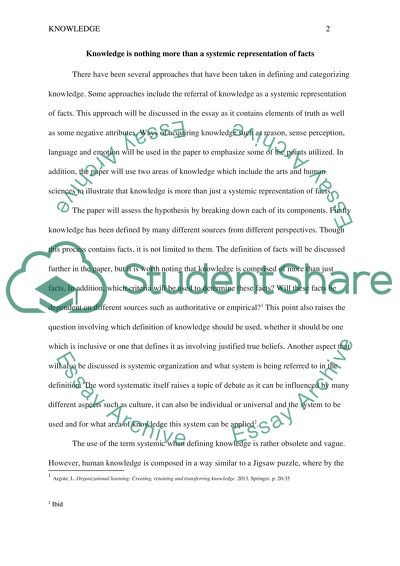Cite this document
(Knowledge Is Nothing More Than a Systemic Representation of Facts Term Paper, n.d.)
Knowledge Is Nothing More Than a Systemic Representation of Facts Term Paper. https://studentshare.org/education/1806189-knowledge-is-nothing-more-than-the-systematic-organisation-of-facts-discuss-this-statement-in-relation-to-two-areas-of-knowledge
Knowledge Is Nothing More Than a Systemic Representation of Facts Term Paper. https://studentshare.org/education/1806189-knowledge-is-nothing-more-than-the-systematic-organisation-of-facts-discuss-this-statement-in-relation-to-two-areas-of-knowledge
(Knowledge Is Nothing More Than a Systemic Representation of Facts Term Paper)
Knowledge Is Nothing More Than a Systemic Representation of Facts Term Paper. https://studentshare.org/education/1806189-knowledge-is-nothing-more-than-the-systematic-organisation-of-facts-discuss-this-statement-in-relation-to-two-areas-of-knowledge.
Knowledge Is Nothing More Than a Systemic Representation of Facts Term Paper. https://studentshare.org/education/1806189-knowledge-is-nothing-more-than-the-systematic-organisation-of-facts-discuss-this-statement-in-relation-to-two-areas-of-knowledge.
“Knowledge Is Nothing More Than a Systemic Representation of Facts Term Paper”. https://studentshare.org/education/1806189-knowledge-is-nothing-more-than-the-systematic-organisation-of-facts-discuss-this-statement-in-relation-to-two-areas-of-knowledge.


